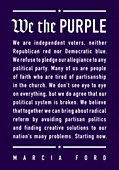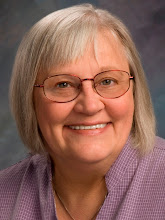The year: 1970.
The context of the year: The release of the powerful but deeply disturbing movie
Joe, starring Peter Boyle Jr., who became Peter Boyle after Sr. went to a better place.
The place: Joe Allen's Pub on W. 46th Street in Manhattan.
The context of the place: One of my favorite hangouts when I was a junior and beyond at Monmouth College in West Long Branch, NJ, now Monmouth U.
The principal players: Peter Boyle Jr. and a friend whose name I forgot minutes after I heard it. My friend Priscilla and I.
So there we were, Priscilla and I, eating burgers or something at a table in this pub known for its clientele of Broadway actors. At the next table were Peter and friend.
Peter's eyes met mine as a smoky cloud wafted between us... Okay, so maybe the bottom half of Peter's eyes met the bottom half of mine. He was in his cups, as they say, but not in the belligerent sense. Being in my own cups, likewise peacefully, it's somewhat surprising that I recognized him. But I did, and this otherwise nondescript guy at the next table went from being "Why would I ever even notice you?" to "Oh my God, it's
Joe!" -- Joe from the movie
Joe, that is, not Joe as in Joe Allen.
We talked. I didn't bring up the movie. After all, Joe the character was a hippie-hater, and I was a…a…counterculturalist (I did
not like the word hippie, even then). I remember laughing a lot. I don't remember what we talked about. Priscilla and the other guy didn't say much at all. Then Peter invited us to a "party," which we were smart enough, and maybe even sober enough, to know probably meant "party of four."
We declined. Somehow, driving back to the Jersey Shore in our questionable condition seemed the wiser choice. Not a wise choice, just wiser.
Years later, I was especially glad I didn't mention the movie. Peter said in an interview once that the movie haunted him for years because he got so much mail praising Joe's anti-hippie rage. It
is a haunting movie, or at least it was in the context of the time.
Today my kids think it's pretty cool that Frank Barone from
Everybody Loves Raymond once tried to pick me up in a bar. I don't know. All I know is that for the half-hour** I spent in his presence, he really was a funny guy.
The memory of that night has popped up at random times over the years -- that is, until
Raymond. Then it popped up pretty consistently. But never more clearly than today, when I read that Peter Boyle died last night.
It's a good memory, one that I don’t need therapy to recall. I like that kind.
* A bit of Peter Boyle trivia: John Lennon was a good friend and Peter's best man at his wedding, which took place a few years
after the encounter at Joe Allen's. Honest.
** A half-hour? Like I have any idea how long I was in that place.


